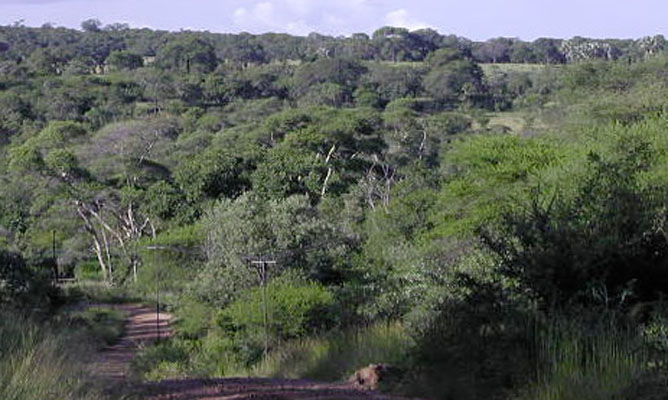
WITH the fast changing climate and erratic weather patterns of the 21st Century, rural people can gradually shift from conventional forms of agriculture and try a hand in forest farming.
Forest farming is where people engage in small-scale plantations of a variety of tree species for commercial purposes. These tree species are not only exotic, but include traditional and indigenous species too.
The most important thing here is not the nature or type of tree, but sustainable management practices that would see their forest ventures grow to fruition.
This enables forest farmers to benefit from three fronts — social, environmental and economic. This sort of a venture does not require only commercial expertise, but will do well by tapping the expertise of the local and indigenous knowledge systems as well.
The centuries old environmental management practice still has a lot offer, especially in these times when the environment is being decimated by climate change.
The integration of indigenous knowledge systems and climate change management practices would contribute to environmental and economic sustainability of any given nation.
Forest farming helps producers of plantations and fruit trees to have ownership of these forest ventures as well as having a major say in the management and dissemination of these forest products.
The advantages of engaging in forest farming are that it can be done at a family scale, local, community and commercial scale. Just like our normal agriculture it can be for subsistence in nature.
- Chamisa under fire over US$120K donation
- Mavhunga puts DeMbare into Chibuku quarterfinals
- Pension funds bet on Cabora Bassa oilfields
- Councils defy govt fire tender directive
Keep Reading
At a small scale or local level, farmers would grow, sustainably manage, harvest and market their natural resource-based products and services in an eco-friendly way. The farmers will be directly in contact with their environment and it will be their duty to nurture and manage it well as they are aware that it will be their main source of livelihoods.
These forest farmers have a chance to satisfy their own local markets by selling to each other, as well as nationally or even internationally, provided appropriate value chains are put in place. Membership maybe based on family ties, kinship, traditional or organised group ventures.
These smallholder ventures should not be classified as State forests, although the State can always assume the overseeing status by providing the rule of law.
Without the shadow of the State and government, criminal elements will always be there and would go hay-wire. As long as the criminal elements know that the long arm of the law is always visible, sanity will prevail. This would also help to reduce forest conflicts, especially on issues such as fruit, firewood and log poaching.
The local producers would cope with environmental challenges such as climate change through establishing forest cover or the much needed carbon sinks to trap large amounts of carbon dioxide from escaping into the atmosphere. This would also become another way of carbon farming which go a long way in supporting the United Nations Environmental Programme (UNEP) blueprint of clean development mechanism (CDM).
These local people hold the sales rights even with the government and the private sector. Gone will be the days of desperately trying to watch the forests growing on their own.
If these farmers grow wattle, pine or gum trees, it would mean that they compete with international markets, attract international buyers and get the most needed foreign currency. This is the only way to achieve stewardship and dominion over their environment. By so doing, they can recreate their own Garden of Eden.
Yes, it’s dreaming, but sometimes dreams can be achieved. We always dream of living in a better environment free of diseases and famine. Intensive participation in these programmes by forest farmers would help to reduce desertification that is threatening to swallow everybody and improve forest cover for the benefit of livestock too.
In these forests, they can engage in activities like bee farming and small-scale game parks just to improve the wonders of nature. They can also engage in sustainable dairy farming and production in order to improve livelihoods, send children to school and arrest criminal activities. This would reduce the burden from the government and by so doing, the farmers become the government’s strategic partners and stakeholders.
Forest companies and organisations would come in with support and management methods in order to boost growth and production. Forest farming enables growers to learn from each other as well as sharing knowledge in a cheaper and sustainable manner. This type of knowledge will not just be for short-term benefits, but life skills to be passed on to generations to come as well.
Through these forest ventures, communities can help to create employment or even establish their own small-scale companies to complement government’s efforts. Even during the times of drought, these forests can help by providing forest cover and keep the ground moist.
Forest farming helps to create sustainable forest platforms. This will go a long way in boosting local voices.
The government should always be ready to assist with any kind of support these people may need so as to reduce dependency. Rather than advocating for investments from outside, the government reduces the headache of dealing with foreigners and transacts with its own people.
The government will empower its citizens. Whenever the voice of the government is loud and clear, even deforestation activities will be managed. If practised sustainably, this would transform the lives of rural people and reduce unnecessary rural to urban migration. Then, what a simple and sustainable way to implement ZimAsset.
Peter Makwanya is a Climate change communicator. He writes in his own capacity and can be contacted on: [email protected]











